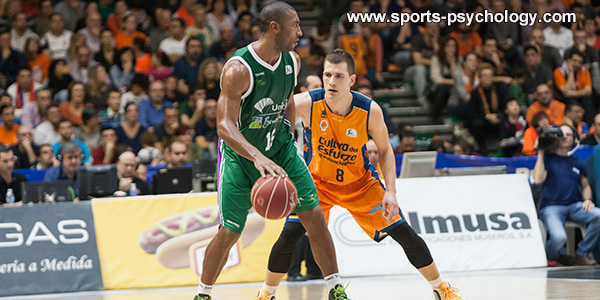How Over Thinking Sabotages Performance
Peak performance in sports occurs when you have a calm mind and can react to your environment.
Over thinking can cloud your judgments and send too many signals to your body at one time.
Philadelphia 76ers star Ben Simmons after the 108-103 Game 2 loss to the Boston Celtics tweeted about his “overthinking” during the game…
He committed five turnovers, had only one point, and failed to make any field goals, which was the first time in his rookie career.
He confessed after the game that his mind got in the way of his performance and was entirely “self-inflicted.”
“It was mainly what I did to myself. I think mentally, I was thinking too much,” Ben Simmons tweeted after Game 2.
What Does it Mean to Overthink?
Do you or your players overthink? Over thinking can take on many forms for athletes…
Most of the time, athletes overthink their decisions when performing. In other words, they become indecisive with their plan…
Another way athletes over think is when they focus too much on the “how to” or technique when performing.
They get lost in trying to have perfect form and lose sight of the indented goal to win the point, score a basket, hit a good shot, execute the play.
One other form of over thinking is when athletes devote too much time thinking about outcome.
Do you worry about the score at the end of the game, for example, and lose focus on current play?
Perfectionists are notorious for over thinking their performance… They try so hard to be perfect and “play by the book” that they sabotage their own performance.
However, any athlete can over think their performance—even the pros!
Simmons wants to do the right thing and fulfill his potential, but this can lead to trying too hard as what happened in Game 2.
How to Stop Over Thinking
When we work with athletes, we want them play with trust in their skills and not over think.
Two strategies will help you stop over thinking are:
1. Be decisive with your plan. Stop second-guessing your initial decision.
For example, if you first think “shoot” do it and don’t hesitate or think you have a better option.
2. Play athletically. You have to trust in your skills and play on auto-pilot. This means that you have done all the training and it’s time to put it to the test. Let go of perfect form and instead just react or “just do it.”
Learn all our mental game strategies for improving trust in your skills with “The Fearless Athlete” audio and workbook program
Related Sports Psychology Articles:
- Learn From The Pros For a Stronger Mental Game
- Overcoming High Expectations in Sports
- Using Adversity to Improve Mental Toughness
Boost Your Self-Confidence With Expert Mental Game Coaching!
Expert mental game coach Dr. Patrick Cohn can help you overcome your mental game issues in sports with personal coaching. We do mental training with athletes of all levels and ages–about 12 years and up. And mental training is not just for elite or professional athletes.
You can work with us in Orlando, Florida or via Skype, FaceTime, or telephone from anywhere in the world. Call us toll free at 888-742-7225 or contact us for more information about the different coaching programs we offer
If you are interested in mental coaching, try our free 15-minute introductory session. Contact Peak Performance Sports today with your name, sport, and what mental game challenges you are having.
You can learn more about our mental coaching programs for athletes here.

